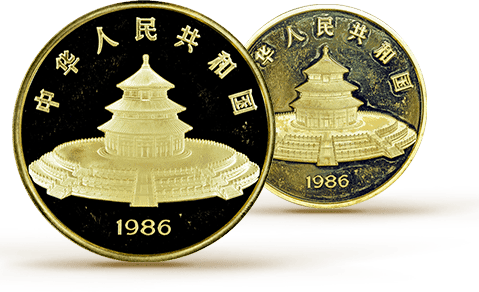為您的硬幣還原本真之美
經驗豐富的NGC硬幣養護師會采用多種專有技術來妥善地去除附著於硬幣表面的有害污染物,從而保護幣面免受進一步的損傷,且在多數情況下有助於提升硬幣的視覺效果。自2001年起,NGC已累計為逾100萬枚硬幣、代幣及紀念章提供專業的養護服務。

專業的硬幣養護服務
NGC硬幣養護師會在先進且安全的操作室內采用多種專有技術來妥善地去除硬幣表面的有害污染物,從而保護幣面免受進一步的損傷,且在多數情況下有助於提升硬幣的視覺效果。值得一提的是,NGC還是美國錢幣協會(American Numismatic Association)和專業錢幣學家協會(Professional Numismatists Guild)所指定的官方硬幣養護服務機構。美國錢幣協會是惟一一家由美國國會特許成立的錢幣收藏組織。 了解更多
全球珍品硬幣的理想之選
NGC現已為來自全球各地的諸多珍貴硬幣藏品提供專業的養護服務,其中包括由史密森學會(Smithsonian Institution)所收藏的珍品。除上述珍罕機製幣外,NGC還為從四大沉船事故發生地所尋回的「沉船幣」以及數不勝數的現代幣提供專業的養護服務。
何為硬幣養護?
硬币藏品往往会因多种原因而受到损伤或发生品相变化,例如:保存或包装不当、不利的环境因素、处理不当或是因时间而产生的自然变化。此外,硬币表面所附着的有害污染物不但会影响其视觉效果,甚至还会对币面造成永久性损伤。这类有害污染物包括:聚氯乙烯(PVC)及其它残留物、泥土、锈渍、斑点、沉积物等。
NGC所提供的先进养护服务能够妥善地去除硬币表面所附着的有害污染物,且在多数情况下得以显著提升硬币的视觉效果。NGC所提供的专业养护服务可还原硬币的本真之美,且不会出现因清洗不当而产生的永久性币面损伤。
NGC概不会对硬币进行包括孔洞填充、划痕打磨或任何其它形式的机械改动在内的修复。NGC所采用的养护技术皆不会对硬币造成侵入性损伤,故而备受业内专家认可。
即刻加入會員並將您手中的硬幣提交至NGC!
今天就加入!NGC養護服務可去除的有害污染物
若長期暴露在不穩定的環境中,則任何材質的硬幣表面皆有可能會出現白霧、斑點、沉積物、氧化、腐蝕及銹漬。NGC所提供的專業服務能夠有效地去除此類附著於硬幣表層的有害污染物,從而確保幣面品相的穩定性。 了解更多
兼顧機製幣與現代幣的專業養護服務
所有材質的硬幣皆有可能因附著於幣面的有害污染物以及不適宜的環境因素而受到影響。在許多情況下,硬幣會被放入含有聚氯乙烯(PVC)成分的塑料保護套或造幣廠包裝中進行保存或銷售。目前已知這種化學物質會緩慢地從塑料保護套或包裝中滲出並附著於硬幣表面。若無法妥善地去除PVC及其它殘留物,則硬幣終將受到永久性損傷。
部分存在上述問題的硬幣若未經專業養護,則有可能不符合NGC的評級條件。而經NGC養護的硬幣將被直接移交至評級部門,並由專業的評級師根據幣面品相來為其評定相應的數值評級等級或NGC細節評級。
重要資訊:許多硬幣的表面存在人工包漿或附著了某些物質以試圖掩蓋其它問題,例如劃痕或因不當清洗而造成的損傷。當NGC去除硬幣表面的人工包漿或附著物後,上述問題往往會變得顯而易見,但這些問題絕非因NGC的硬幣養護工藝所導致。請知悉,NGC的養護工藝並不會使硬幣表面產生劃痕,也不會致使其獲評NGC細節評級中的「不當清洗」類標註。

聚氯乙烯(PVC)、膠水與浸漬殘留物
NGC養護服務通常能妥善地去除因使用含PVC成分的保護套、膠水或化學品浸漬所產生的殘留物。若不及時處理此類問題,則殘留物會對硬幣表面造成永久性損傷。值得註意的是,許多中國硬幣皆被放置於含PVC成分的包裝中進行銷售。
NGC養護服務無法解決的問題
盡管選用NGC養護服務能夠為許多硬幣增光添彩,但有些問題卻無法通過養護來解決,例如:腐蝕、磨損、劃痕和「乳白色」斑點。NGC不會對硬幣進行修補,亦無法復原因機械篡改所產生的損傷。 了解更多
重要資訊: 因不當清洗而產生的發絲痕與其它幣面問題往往會被人工包漿或附著物所掩蓋。當您選用NGC養護服務來去除人工包漿與附著物後,則幣面可能會顯現因先前的不當清洗行為而產生的問題。請知悉,NGC的養護工藝並不會使硬幣表面產生劃痕,亦不會導致其獲評NGC細節評級中的「不當清洗」類標註。

現代銀幣表面的「乳白色」斑點
此類腐蝕現象可能會在硬幣的生產過程中出現,亦有可能是在其出廠多年後產生。NGC養護服務無法去除這些令人難以捉摸的斑點。請知悉, NGC所采用的養護技術皆不會導致此類斑點的產生。
當硬幣被提交至NGC進行評級時,幣面所呈現的「乳白色」斑點會對其評級等級產生負面影響。此外,NGC不會對封裝入盒後產生斑點的硬幣負責。請知悉,「NGC保證」並不適用於在評級完畢後因環境問題而導致品相惡化的硬幣,此類問題包括但不限於:斑點、白霧、聚氯乙烯(PVC)滲出和腐蝕。
進一步了解硬幣表面的白斑>
NGC養護流程
-
NGC對您所提交的硬幣進行評估
首先,NGC會對硬幣進行評估,旨在判定其能否通過選用養護服務而獲益。若養護服務無法為硬幣提供助益,則其會被直接移交至NGC評級部門進行評級。
-
NGC為您的硬幣提供養護服務
若NGC判定硬幣能夠通過選用養護服務而獲益,便會運用先進的工藝對其進行養護。在養護完畢後,硬幣會被移交至NGC評級部門進行評級。
-
NGC為您的硬幣提供評級服務
在養護完畢後,硬幣會被即刻移交至NGC評級部門進行鑒定、評級和封裝。經NGC評級與封裝的硬幣將被寄還給提交者。
常見問題
NGC硬幣養護服務如何收費?
欲了解NGC在中國香港所提供的養護服務與收費標準,請點擊下方鏈接進行查閱。
NGC養護服務與收費標準 >
NGC是否提供任何形式的保證?
NGC不會為提交選用NGC養護服務的硬幣提供評級等級保護或任何形式的評級等級保證。只有經NGC評級與封裝的硬幣方可由「NGC保證」為其保駕護航。
重要:為硬幣藏品選用NGC養護服務並不一定有助於提升其評級等級。在少數情況下,NGC養護服務可能會揭露曾被殘留物或其它幣面附著物所覆蓋的額外問題。NGC所采用的養護技術均不會造成上述問題。請切記,經NGC養護的硬幣在被提交至任一硬幣評級服務機構後,仍有可能獲得更低的評級等級或無法獲得評級等級。在將硬幣提交至NGC中國香港辦公室以選用養護服務時,即視作提交者放棄在該硬幣被提交至任一評級服務機構後獲評更低的評級等級或無法獲得評級等級時,對NGC(及任何關聯機構、部門、子公司或與NGC相關的其他實體、NGC及其相關機構各自的負責人、董事、雇員、代理和受讓人)進行任何形式的法律索賠或主張的權利。
欲了解更多資訊,請點擊此處
當NGC對硬幣進行評估時會怎麽做?
NGC會對每一枚提交選用養護服務的硬幣進行評估,旨在判定其能否從中獲益。下文中詳細列明的特殊處理方式適用於NGC評級幣以及PCGS評級幣的提交。
- 若NGC認為一枚硬幣能從養護服務中獲益,則會對其進行養護,而後直接移交至NGC評級部門進行評級。NGC將同時收取相應的養護費與評級費。
- 若NGC認為一枚硬幣無法從養護服務中獲益,則不會對其進行養護。在此情況下,裸幣(指未經封裝的硬幣)將被移交至NGC評級部門進行評級。NGC僅收取評級費。
- 若NGC認為經NGC評級的硬幣無法從養護服務中獲益,則不會對該硬幣進行養護,並會將其保留在原封裝盒中返還給提交者。NGC將在扣除每枚硬幣5美元的手續費後,退還剩余評級費。
- 若NGC认为经PCGS评级的硬币无法从养护服务中获益,则不会对该硬币进行养护,并会将其移交至NGC评级部门进行换装。无论该枚硬币是否换装成功或是经NGC评级,皆会被收取全额NGC评级费。
- *請知悉,NGC將盡可能滿足提交者的特殊要求。若特殊要求無法得到滿足,NGC概不負責。
如何提交選用NGC養護服務?
了解NGC的評級流程
為了確保公正性,NGC的專家不會知曉提交者的身份信息。所有提交至NGC辦公室的硬幣都會在安全攝像機的監視下被啟封,並且每一枚硬幣都會被賦予一個專屬追蹤號碼,工作人員亦將非常謹慎地對其進行處理。當硬幣被封裝後,其NGC評級標簽上會單獨印有一個專屬評級號碼。
NGC采用國際公認的謝爾頓1-70數值評級標準。若硬幣因幣面品相問題而無法獲評數值評級等級,則其會被賦予NGC細節評級且評級標簽上將標註相應的幣面問題。每一枚硬幣皆會經NGC專業評級團隊中的數位評級師共同鑒定,旨在準確地評定其真實性、評級等級以及評級標註。
評級完畢的硬幣會被封存於NGC幣緣可視(EdgeView)封裝盒中。這款先進的封裝盒經史密森學會測試認可,並且現已被用於封存該博物館中的大部分稀世珍品。而封裝完畢的硬幣則會交由質檢專家進行復核,並且拍攝用於上傳至NGC線上檢驗評級工具中的高清圖片。
每一枚經NGC評級的硬幣皆由行業先進的「NGC保證」為其真實性和評級等級保駕護航。此外,NGC還是美國錢幣協會(ANA)和專業錢幣學家協會(PNG)所指定的官方硬幣評級服務機構。
哪類硬幣無法選用NGC評級服務?
NGC不會為假幣、真偽存疑或真實性無法考證的硬幣、增刻或移除造幣廠標誌的硬幣以及年份經人為篡改的硬幣提供評級服務。此外,NGC亦不會對幣面經人為篡改的硬幣進行評級,例如:幣面浮雕經人為噴砂篡改以求獲評「Cameo」標識的硬幣。與此同時,部分類別的硬幣暫時無法選用NGC評級服務,其中包括中國方孔錢。
當我將硬幣提交至NGC進行養護後便可獲評更高的NGC評級等級嗎?
將一枚硬幣提交至NGC進行養護並不意味著其可獲評更高的NGC評級等級。NGC養護服務能夠提升硬幣的視覺效果,並使幣面狀態保持穩定。在某些情況下,經NGC養護的硬幣可能會獲評更高的評級等級,但NGC無法對其進行保證。
NGC養護服務能否為銅質硬幣增添「銅色」?
隨著時間的推移,銅質硬幣的色澤會從紅色(NGC評級標簽上將標註「RD」)逐漸變為紅棕色(「RB」),繼而將變為棕色(「BN」)。這是一個不可逆轉的過程,故而銅質硬幣所獲評的「BN」、「RB」或「RD」標註不會因其選用NGC養護服務而發生改變。
如何聯系NGC養護?
中國 - 香港特別行政區
Certified Collectibles Group — International Hong Kong Limited
中國香港九龍尖沙咀
廣東道25號海港城
港威大廈1座12樓1208-10室
到訪辦公室前,敬請預約。
辦公時間(周一至周五):上午10點至下午6點
電話:(+852) 2115 3639
電郵:Service@NGCcoin.hk
美國總部
郵政郵箱4776
美國佛羅里達州薩拉索塔市34230
辦公時間(周一至周五):上午8點至下午8點(美國東部標準時間)
敬請致電或發送短信至:1-855-GRADE10
電郵: Service@NGCcoin.com
中國-香港特別行政區
德國
Certified Collectibles Group – International GmbH
德國慕尼黑
塞德爾大街28號
80335
到訪辦公室前,敬請預約。
辦公時間(周一至周五):上午9點至中午12點;下午1點30分至5點
電話:+49 (0) 89 550 66 780
電郵:Service@NGCcoin.de
當我在提交硬幣時選用了NGC養護服務以及NGC重新評級服務,但NGC拒絕為該枚硬幣提供養護服務,我該怎麼做?
NGC養護服務有助於去除硬幣表面有礙觀瞻的包漿、銅斑以及其它幣面問題。客戶可在提交一枚經NGC評級的硬幣時為其同時選用NGC養護服務以及NGC重新評級服務(NGC養護+NGC重新評級組合服務)。若NGC拒絕養護選用上述組合服務的硬幣,則亦不會為其提供重新評級服務。若無論養護評估結果如何,客戶皆需為其所提交的硬幣選用NGC重新評級服務,請在提交表上以粗體字清楚地註明「REGRADE REGARDLESS OF CONSERVATION DECISION」。














